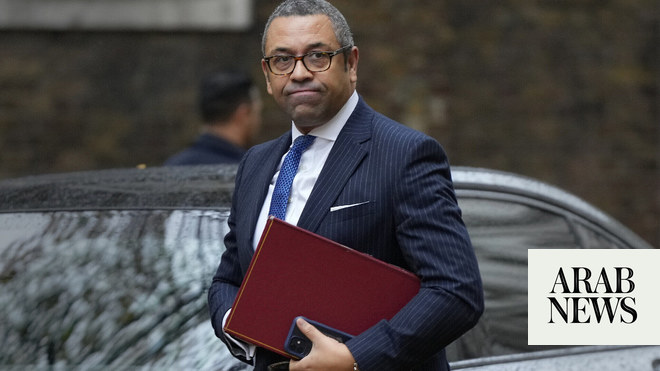
The Iranian regime’s increasing involvement in the Russian-Ukrainian war could have severe repercussions for global peace and security due to Tehran’s military adventurism, ballistic missile program and its increasing nuclear threat.
One of the reasons behind the regime’s decision to support Russia in the war is most likely linked to its nuclear ambitions, as it has long sought assistance from Moscow in order to bolster its nuclear program.
This is probably why Iran has gradually escalated its engagement in the conflict. On March 2, Iran abstained in the UN General Assembly vote on condemning Russia’s invasion and demanding its withdrawal from Ukraine. Tehran then voted against an UNGA resolution that suspended Russia’s membership in the UN Human Rights Council. In July, Russian President Vladimir Putin made a visit to the Islamic Republic, where he received huge support from Supreme Leader Ali Khamenei.
Following the Russian president’s visit to Tehran, Iran’s supply of kamikaze drones to Russia became the first instance of military cooperation between Moscow and Tehran. In September, the Ukrainian Foreign Ministry stripped Iran’s ambassador in Kyiv of his accreditation and reduced the embassy’s diplomatic staff.
One of the problems with the West’s response to the Iranian regime’s aggression is that it did not act forcefully, most likely in order to not completely scuttle the prospect of reviving the nuclear deal with the Islamic Republic. Despite Tehran’s military escalation, the EU would not initially admit that the regime was entrenched in the war on Ukraine. EU foreign policy chief Josep Borrell last month said that he wanted further proof. “We will look for concrete evidence about the participation (of Iran in the Ukraine war)," he told reporters.
One of the problems with the West’s response to the regime’s aggression is that it did not act forcefully
Dr. Majid Rafizadeh
Ultimately, the EU acknowledged that the Iranian regime was indeed providing “military support for Russia’s unprovoked and unjustified war of aggression against Ukraine,” via the “development and delivery of Unmanned Aerial Vehicles to Russia.”
In the next phase, the Iranian regime — now apparently even more emboldened — began sending troops to Crimea to assist Russia in its attacks on Ukraine’s infrastructure and civilian population by helping to increase the effectiveness of the suicide drones. The White House admitted on Oct. 20 that it had evidence that Iranian troops were “directly engaged on the ground” in Crimea. “The systems themselves were suffering failures and not performing to the standards that apparently the customers expected. So, the Iranians decided to move in some trainers and some technical support to help the Russians use them with better lethality,” said US National Security Council spokesperson John Kirby.
The Iranian regime is now further increasing its involvement as it will reportedly be providing ballistic missiles to Russia, in addition to the drones. The regime is likely attempting to reassert itself as an important global player.
The theocratic establishment of Iran has the largest and most diverse ballistic missile arsenal in the Middle East. And Ukrainian Air Force spokesman Yuriy Ihnat said: “Ukraine currently doesn’t have effective air defense systems against ballistic missiles. Iran will likely supply those (to Russia), unless the world finds a way to stop it.”
The Iranian leaders who are involved must be held accountable. Several top generals are directly involved in the war against Ukraine and they most likely receive their orders from the supreme leader.
Maj. Gen. Mohammed Hossein Bagheri, who is the chief of staff of Iran’s Armed Forces and supervises the country’s military drone program, is a key player in the military cooperation with Moscow. According to the EU, he is “involved in the expansion of Iranian-made UAVs abroad; in this capacity, he inaugurated an assembly line in Tajikistan destined for the export of Ababil-2 drones. He also participated in the development of Mohajer-6 drones and their supply to the Russian Federation for their use in the war of aggression against Ukraine.”
In addition, Brig. Gen. Saeed Aghajani, who is commander of the Islamic Revolutionary Guard Corps’ Aerospace Force UAV Command “oversees and directs the planning, equipment and training for Iran’s UAV operations, which include also the supply of drones to international allies of Iran, including the Russian Federation.”
And Gen. Sayed Hojatollah Qureishi, who is in charge of the Supply, Research and Industrial Affairs Division at the Iranian Ministry of Defense, negotiated “the agreement with the Russian Federation in relation to the supply of Iranian-made Unmanned Aerial Vehicles for their use in the war of aggression against Ukraine.”
UK Foreign Secretary James Cleverly noted in a statement: “These cowardly drone strikes are an act of desperation. By enabling these strikes, these individuals and a manufacturer have caused the people of Ukraine untold suffering.”
In a nutshell, the West ought to closely monitor the Iranian regime’s expanding ties with Russia, particularly when it comes to Tehran’s military adventurism and nuclear program advancement.
Dr. Majid Rafizadeh is a Harvard-educated Iranian-American political scientist. Twitter: @Dr_Rafizadeh












